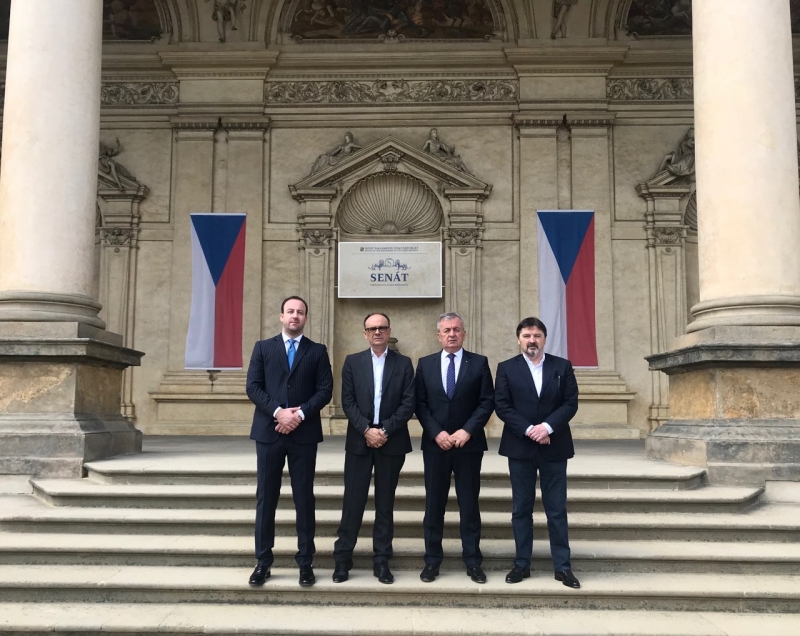During day one, delegation of the Parliament of Montenegro, led by Chairperson of the Committee on International Relations and Emigrants Mr Andrija Nikolić and Chairperson of the Security and Defence Committee Mr Obrad Mišo Stanišić, held a series of meetings with the following: Vice-President of the Czech Republic Senate Mr Jiří Šesták, Chairperson of the Senate’s Committee on EU Affairs Mr Václav Hampl, Chairperson of the Committee on Foreign Affairs, Defense and Security of the Senate Mr František Bublan, Vice President of the Czech Chamber of Deputies Mr Jan Hamáček, Chairperson of the Committee on Foreign Affairs Lubomír Zaorálek, as well as with Assistan Foreign Minister of the Czeck Republic Jakub Dürr.
Welcoming Montenegro’s membership of NATO, Vice-President of the Czech Republic Senate Mr Jiří Šesták stressed that Montenegro was the best prepared Western Balkan country for joining the European Union.
Montenegro is the European Union's window towards the Western Balkans, a country that exports stability and strengthens the European enthusiasm of its regional neighbours, Andrija Nikolić, Chairperson of the Committee on International Relations and Emigrants, said. With a fully harmonised foreign and security policy with Brussels, and with 30 open and three temporarily closed negotiation chapters, Montenegro leads the process of joining the European Union and, for certain, it will be its first next member, Mr Nikolić added.
The Czech Republic remains strongly committed to promoting the European Union's enlargement policy, as it is in the best interest of the EU and candidate countries, Chairperson of the Committee on Foreign Affairs, Defense and Security of the Senate František Bublan said, upon whose invitation the Montenegrin parliamentary delegation is paying a visit to Prague. Mr Bulban reminded that since its foundation, the Visegrad Group was a synonym for a successful model of regional cooperation, which accelerated the European integration of the Czech Republic, Hungary, Poland and Slovakia, with the message that Montenegro could fully count on the political, expert and technical support of the Czech Republic and Visegrad Group.
Mr Andrija Nikolić, Chairperson of the Committee on International Relations and Emigrants, expressed his belief that the future actions of the Visegrad Four countries, specifically the Czech Republic, would be aimed at preserving the principles for evaluating the concrete and visible results of the candidates for membership, and that the enlargement of the European Union to the countries of the Western Balkans would remain at the top of the priority list at the upcoming meetings of the Visegrad Group. At the meeting with Mr Bublan, Chairperson of the Security and Defence Committee Mr Obrad Mišo Stanišić stressed that Montenegro's admission to NATO was the greatest political achievement since the restoration of statehood, the strongest long-term guarantee of the country's security, a prerequisite for unhindered economic development and a strong wind back to our integration process into the European Union.
Mr Miodrag Vuković, member of the Committee on International Relations and Emigrants, and Mr Luiđ Ljubo Škrelja, member of the Security and Defence Committee, noted that integration as a cornerstone of Montenegrin state policy proved to be the best framework for the maturation and development of Montenegrin society.
On the first working day of the official visit to the Czech Republic, a delegation of the Parliament of Montenegro and their Czech hosts agreed to continue the intensive communication at the level of working bodies of the two parliaments dealing with foreign affairs and security and defence issues.












